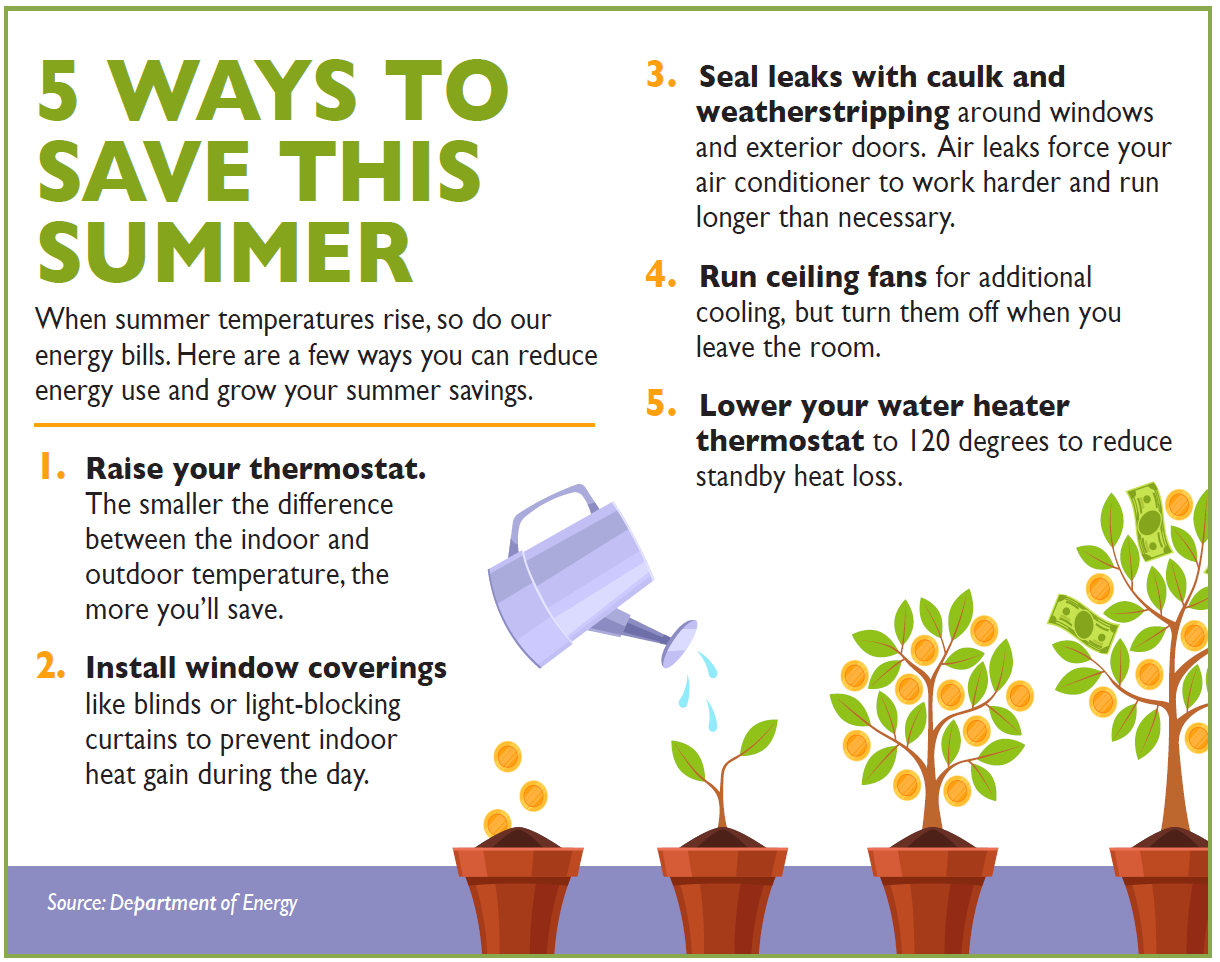Grow your summer energy savings
Fresh, homegrown food — whether it’s shopping at the local famers’ market or sharing the abundance of garden tomatoes with a neighbor — is one of the best parts of summer. It’s amazing how just a few seeds, some fertilizer and water can turn into a bounty.
Just as simple steps can yield an abundance of food, simple steps can also result in energy savings. You don’t need to be a farmer or botanist to know that plants need water –– just like you don’t have to be a lineworker or engineer to know that adjusting the thermostat or turning off lights can reduce your monthly electric bill.
Summer months bring some of the highest energy bills of the year. But why? Cooling your home accounts for a large portion of your monthly energy use, and the hotter it gets, the harder (and longer) your air conditioner works to keep you cool.
One of the great things about being part of Petit Jean Electric Cooperative is that we’re locally owned by you, our members. So instead of making profits, we can focus on helping our community. That’s why we want to help you keep your money in your wallet.
Most people don’t know everything about electricity, and that’s why we’re here to help you. There are no investors making profits here — just knowledgeable people with local jobs, working for our neighbors to ensure there is electricity available when needed.
Consider these simple no-cost energy savings tips this summer:
- Raise your thermostat. A smart, programmable thermostat learns your household’s patterns and adjusts itself when the house is not occupied, reducing energy use when no one is home.
- Install window coverings. About 76% of sunlight coming through a standard, double-pane window enters and heats the home, according to the Department of Energy.
- Seal air leaks with caulk and weatherstripping. Leaks allow cooled air to escape and may contribute to moisture problems within the home.
- Run ceiling fans. Remember, fans cool people, not rooms. Be sure to turn fans off in unoccupied rooms.
- Lower your water heater thermostat. Water heaters set higher than 120 degrees can waste anywhere from $31 to $61 annually in energy costs, according to the Department of Energy.
Find more ways to save at energy.gov.

